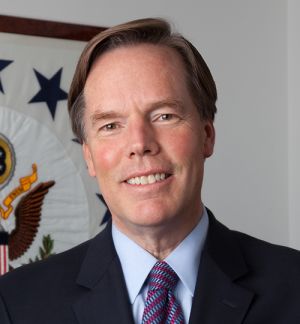The Obama administration is looking east to Asia and the many dilemmas concerning our future power contest with China. There are plenty of other problems to worry about this summer — the European economic crisis, a looming civil war in Syria, and the sputtering Iran negotiations. While the United States has to remain engaged on every continent, especially Europe and the volatile Middle East, Asia is now indisputably at the center of our foreign policy future.
Secretary of Defense Leon Panetta’s current trip to Asia is emblematic of what the administration is now calling the “rebalancing” of our global policy toward a priority emphasis on the vast Asia-Pacific region, where our business, political, and military interests are most engaged. On Monday, he became the first American leader to return to the hub of our Vietnam War naval operations, Cam Ranh Bay, with the promise of a significant upgrade in relations with Hanoi and more frequent American ship visits in the future.
In Singapore a few days before, he announced the United States will position 60 percent of our naval forces, including six carrier battle groups, in the Pacific, a departure from the 50-50 split with the Atlantic that had been the practice for many years. Combined with the new rotation of Marines in northern Australia and the build-up of Anderson Air Force Base in Guam, the administration has acted swiftly to strengthen ties with our main treaty allies — Japan, South Korea, and Australia — but also with Thailand, the Philippines, and Singapore. Together, these initiatives send a message of reassurance to Asian countries which want the United States to balance a newly powerful and sometimes bullying China. But Obama and Panetta are also sending an unmistakable message to the Chinese leadership — the United States intends to remain the predominant power in the Pacific.
Panetta took this Asia-first emphasis to New Delhi this week, where the United States hopes to work more actively with the Indian Navy and Air Force in the Western Pacific and Indian Oceans. This is a long-term work in progress. India has an on-again, off-again attitude in working with the United States on issues such as Iran. It won’t act in lock step with us like a traditional ally and is increasingly distracted by the failure of its economic reform agenda and a sharp decline in its GDP growth rate to 5.3 percent.
The administration has wisely not overreacted to these difficulties. It understands our long-term interests are aligned with India, especially in managing China’s rapid military expansion. We had more military exercises with India last year than any other country. We are working closely with India to contain the Taliban in Afghanistan and terrorist groups in increasingly unstable Pakistan. Still, it was clear from my own trip to India this week that a decisive test of the new US focus on Asia will depend on whether India will choose over time to be a full partner.
The US rebalancing faces an additional challenge. How will China react? While strengthening the American military to balance China is sensible, as we must remain the leading power in the region, the risk is Beijing may believe we actually intend to encircle and weaken it. President Obama, like presidents Bush and Clinton before him, has favored economic and political engagement with China and has rightly rejected the view that we should contain China or demonize it as an enemy. In fact, we have common interests with Beijing on piracy and terrorism and will need its help to limit retrogrades North Korea and Iran.
Since a military conflict with Beijing is unthinkable, the true test of our new Asia strategy is to achieve a difficult balance — remaining sufficiently strong militarily to deter a more aggressive future Chinese military while avoiding actions that could turn China from competitor to outright foe. This will test our diplomatic dexterity for decades to come.
Obama’s new Asia policy is a largely good news story at an otherwise crisis-filled time. An axiom of American politics is that Washington cannot take on big and ambitious ventures in an election year. But, that is exactly what we are witnessing in the administration’s strategic play to keep the United States at the center of power in Asia for years to come.
Burns, Nicholas. “US makes Asia a priority.” The Boston Globe, June 7, 2012





